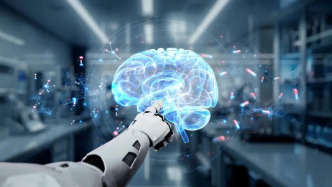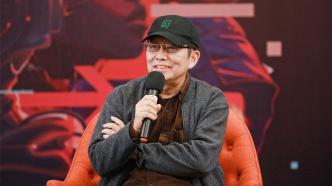
With the rapid development of artificial intelligence technology, the film and television industry has also ushered in unprecedented changes. Not long ago, Sora, launched by Open AI, released a series of AI videos that shocked the world and the film and television industry. Subsequently, major film and television companies have successively announced related layout plans, and news such as Open AI executives going to Hollywood have also frequently attracted public attention. The current status of AI technology in the film and television industry is gradually emerging, and is bringing new changes and development opportunities to the industry.
On April 17, Wanhe Tianyi, Three-Dimensional Pictures, NOVATECH, Microsoft Geek Team, and Microsoft Reactor jointly brought an in-depth dialogue on "From AI to the Screen". The famous Chinese director Huang Jianxin and Microsoft CTO Wei Qing held a dialogue in Shanghai with the theme of "How AI reshapes the new landscape of the film and television industry."
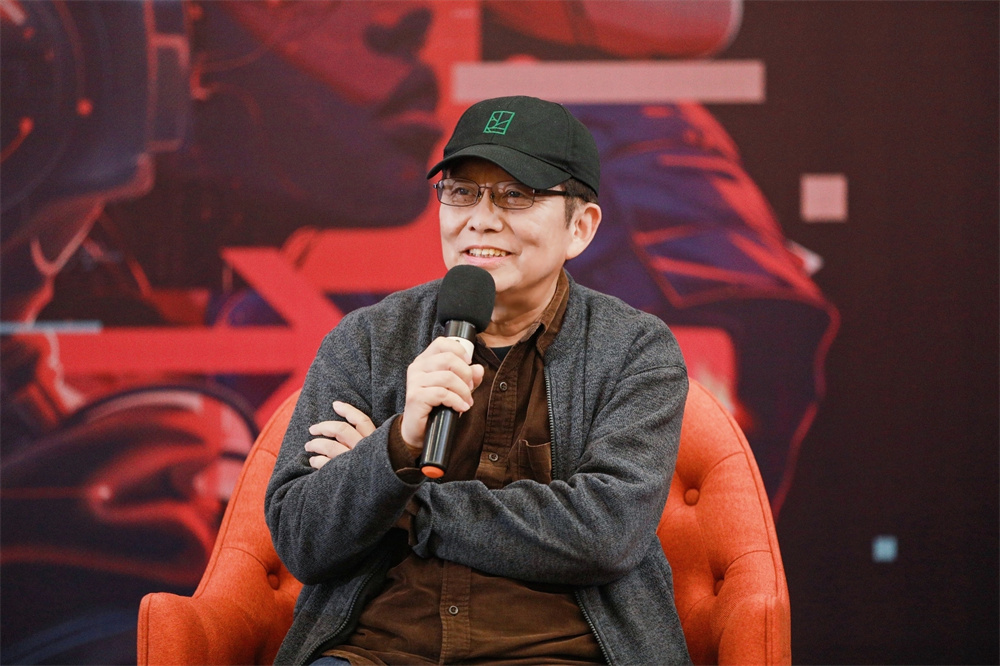
Huang Jianxin
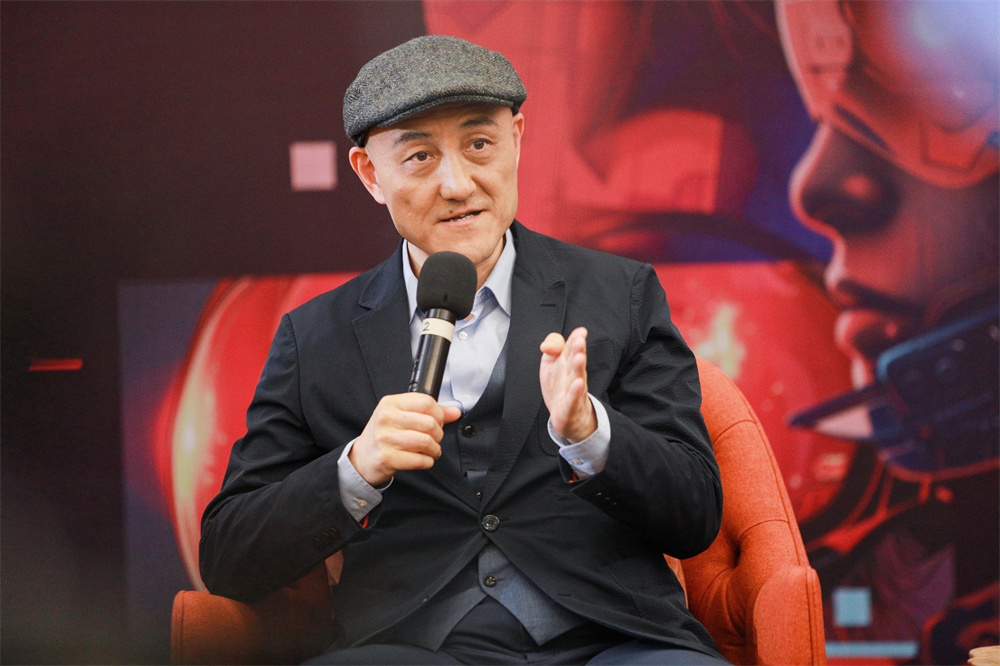
Wei Qing
There is no doubt that AI technology provides more efficient and accurate tools for film and television production. Through deep learning and big data analysis, AI can automatically generate high-quality visual effects, sound effects and scene design, greatly shortening the production cycle and reducing costs. At the same time, AI can also assist directors and producers in script analysis and character design, and provide valuable suggestions and feedback, thereby improving the quality and level of the work.
At the same time, technological development will inevitably bring pain to the industry. How people can discover and find their new position under the "dimensionality reduction attack" of machines has also become a focus of conversation.
Artificial intelligence makes the sacred moments of movies disappear?
At the beginning of the event, science blogger Xiaohan played a "sci-fi short film" that was completed entirely with AI applications - the continuous development of AI on Earth has caused conflicts among humans, and the outbreak of war has put the Earth in danger. Desperate humans have no choice but to seek help from AI for rebirth. After precise calculations, AI restarted the new Earth by destroying the Earth.
The scenes that were originally only for science fiction blockbusters were completed by mainstream AI software such as Midjourney and Runway, the dialogue was produced by the artificial intelligence voice tool Eleven Labs, and the music came from Sono. Xiaohan, the "director", said that the entire short film took about a week from the idea to completion.
The two big names who served as dialogue guests are one from the literary and art world, a famous director with many blockbuster works; the other is from a technical background, an expert who has experienced and promoted the digital transformation of society.
Huang Jianxin cited the first AI movie "Our T2 Remake" just released in the United States as an example, "50 people completed the work of 600 people in one and a half years in three months, which caused a great sensation."
Huang Jianxin, who has been following the development of science and technology, said, "The concept of AI has been around for a long time, but it has not touched the film industry or entered the boundaries of our work and life in the past." When this change really comes, "people in the film industry are extremely sensitive."
Huang Jianxin believes that the reason why it is worth discussing is that "the emergence of AI will replace the part of the traditional film industry that is considered sacred" - "In the past, what we considered sacred, cameras and recorders disappeared, and it can also quickly write a movie script plan." Artificial intelligence not only replaces mechanical labor, but also may provide new possibilities.
He shared a conversation he had with AI:
"I asked AI, do you know how subtle the filming scene is? When a director discusses with an actor, he enters a hallucination state. The actor's performance suddenly goes beyond the script, beyond expectations, and beyond everything. Everyone thinks this actor is so good! How do you achieve this subtlety? Your current data and statistical learning are all known, so what do you do with the unknown artistic part?"
AI’s answer to Huang Jianxin was, “I admire or worship the unique and creative human thinking habits.” “But it asked me, are you the one in a million?” Huang Jianxin sighed. It was at that moment that he realized it was intelligent. I thought it was just inventory. This was a wake-up call for me.”
As an expert in the field of technology, Wei Qing shared his thoughts on artificial intelligence from a more rational perspective. By discussing the nature and application of artificial intelligence, Wei Qing emphasized that artificial intelligence is a machine capability trained by humans using data, and its manifestation is to simulate human behavior, converting actions into electrical signals, and then representing them into light or vibration signals, so that people can see them. At the same time, the application of artificial intelligence also involves signal generation, filtering, conversion and other links, and pointed out that the essence of artificial intelligence is to simulate human methods, rather than just sensory perception.
"These objects are perceived, and behind them are human intentions. After being received through machine capabilities, they are understood as a kind of 'referent', but we are often easily misled by appearances." Therefore, Wei Qing emphasized the importance of seeing the essence through phenomena. Artificial intelligence is ultimately still a tool. Even if it is represented as an art form, its own way of representation is still a technology.
The impact of AI on film and television may bring some acceleration, but the film and television industry itself has always been in the wave. After the epidemic, the audience's offline viewing habits were subverted, and short videos occupied a large amount of people's entertainment time. A large number of theaters were closed, and creators also invested in the production of streaming media and vertical screen dramas. "Movies have been forced into a niche. The feature it retains at present is the awareness of 'field'. Hundreds of people sit together to watch a movie. The empathy of these hundreds of people will form a 'field'. This is the charm of the movie." AI can help film production standards achieve better audio-visual, "It will make this experience more interesting." Huang Jianxin said.
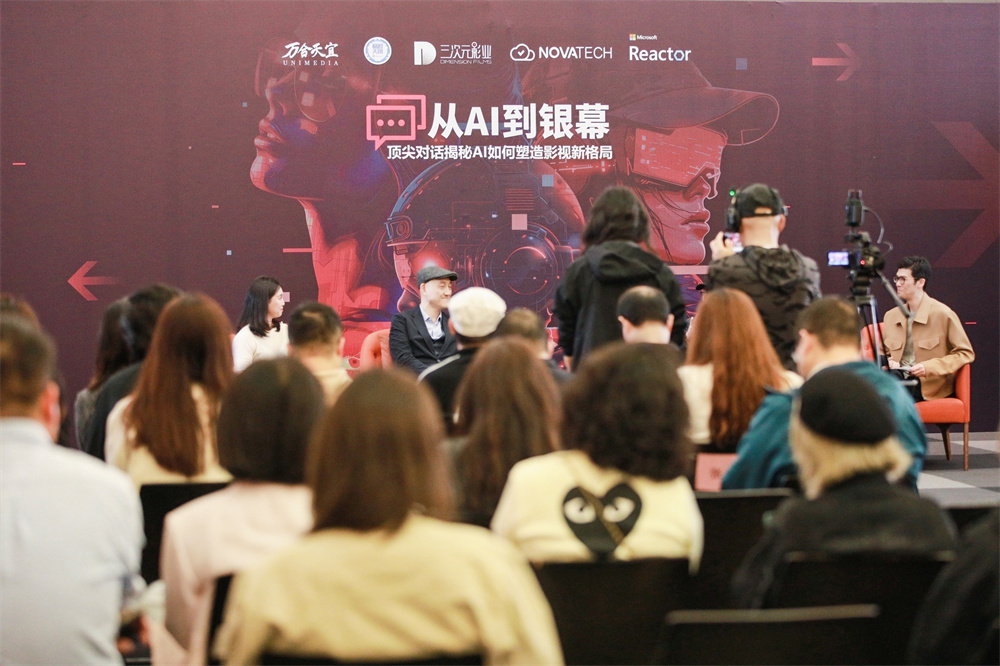
Event site
AI is an efficient tool. Humans can also choose to "quarrel, drink, and hug"
During the event, a clip of Charlie Chaplin's Modern Times was played, which was thought-provoking. In the industrial age, machines replaced human labor, and the invention of sound films also made a generation of silent film masters silent. Combined with the theme of the day, the historical similarities made every participant on the scene understand, and the charm of art works that transcend time seems to be a kind of testimony to human intelligence.
Huang Jianxin does not shy away from the possible impact of AI - "Film investors will be happy because it can reduce production costs, but it will also put hundreds of thousands of people out of work."
At the dialogue, Microsoft demonstrated the AI application tool Agent that can be used for filming movies. With this AI collection, a film team can be directly formed. AI roles such as director and screenwriter can be directly created, and each AI role has its own responsibilities. After inputting the direction and requirements, the AI screenwriter generated a script in less than 10 seconds; according to the script, the makeup of the characters and the drawing of the scene atmosphere effect map were completed by the AI artist in less than 10 seconds.
Such demonstrations can also be extended to all aspects of film and television production, but this does not mean that anyone can use artificial intelligence to complete his work. Wei Qing said that what the above-mentioned intelligent agents do is actually based on the maturity of technology. Through the understanding, decomposition, planning, and serialization of tasks, they complete the execution actions. "Originally, they are all based on some old knowledge systems that humans already have." If such applications are rolled out on a large scale in the future, the result will be that "machines will do things for you based on your knowledge, but your knowledge needs to be precipitated into an algorithm. For people who have such knowledge data precipitated into algorithms, there will be many intelligent agents to help them solve the tedious work they don't want to do, and the ultimate goal is to let people do the work they want to do."
When asked if he would consider using AI in his next work, Huang Jianxin was not opposed. But he also realized that this kind of efficiency would inevitably make the film lose something. "There are fewer quarrels, confrontations, drinking, hugs in the creative process... We often have different opinions in the discussion meetings of different departments, and we quarrel a lot, bang the table and clash with each other. In the evening, we drink and hug each other. When I come up with something unique, everyone will be very excited to say that working with AI will not bring a lot of happiness in the flow of life." Huang Jianxin believes that no matter how perfect AI develops, people have seven emotions and six desires, and they still need to make choices. "People will insist on one thing, which is called choice. AI is just a choice, but humans have multiple choices."
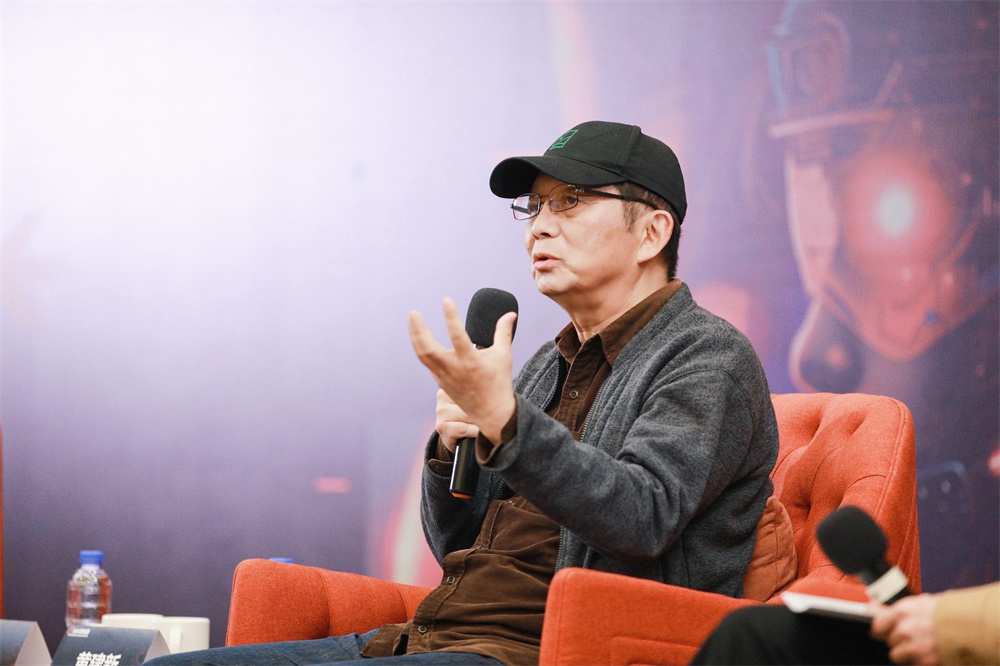
Huang Jianxin
When the times change, we can only keep pace with the times
As a filmmaker, Huang Jianxin has experienced the transition from film to digital, and he is fully prepared for the changes that AI will bring to the industry. "If it is the fourth industrial revolution, then the changes brought by AI must be much greater than the steam engine." There is no doubt that the potential of artificial intelligence, learning ability, memory, and search ability are far superior to humans. "In terms of perception and cognition, we will lose to AI." But at the same time, he emphasized, "The relationship between specific people and AI is different from the relationship between humans and AI. Specific people may lose their jobs because of AI, but for humans, AI is a step that pushes humans into progress."
Regarding the relationship between AI and humans, Wei Qing agrees with Huang Jianxin's statement that we should treat individuals as individuals and humans as a group separately. "Society is not subject to human will, and progress impacts vested interests. We may be vested interests in the previous era, but when the times change, we have only one choice, which is to keep pace with the times."
Wei Qing is optimistic about the development of AI. "In the past, people were alienated into machines. In the future, machines will liberate people, and talents will be able to do what people can do." Although people are always worried about AI at present, Wei Qing shared his experience at work, "When you think about it, it's a problem, and when you do it, it's an answer." There are far fewer people who actually practice it than those who talk about it with certainty, but if you really participate in it, you will find that AI's current capabilities are still limited, and it is too early for it to replace human work. But Wei Qing believes that "people always tend to overestimate its short-term capabilities and underestimate its long-term capabilities."
Although the conversation that day was between filmmakers and technology experts, the issues discussed were also directed to all walks of life in society. Wei Qing pointed out that what attracted more attention today was that AIGC attracted more attention from the public, but if we focus on "AI for science, astronomy, biology, quantum mechanics, materials science... these basic sciences may undergo earth-shaking changes in the future due to this change", Wei Qing said, "When we perceive these, we may find that it is not the machines that are so powerful, but the people who need to sublimate themselves. The ability of machines is a tool, and they will replace those humans who have not been sublimated. I think this is the direction of future development."
From Chat-GPT to Sora, AI is a hot word in recent years, but the concept of artificial intelligence has existed for many years. Huang Jianxin said with emotion, "The accumulation of human wisdom has exploded today. It is the crystallization of human wisdom. As a specific person, you will feel frustrated if you are replaced; but from the perspective of human beings, you have to sigh at its greatness."


